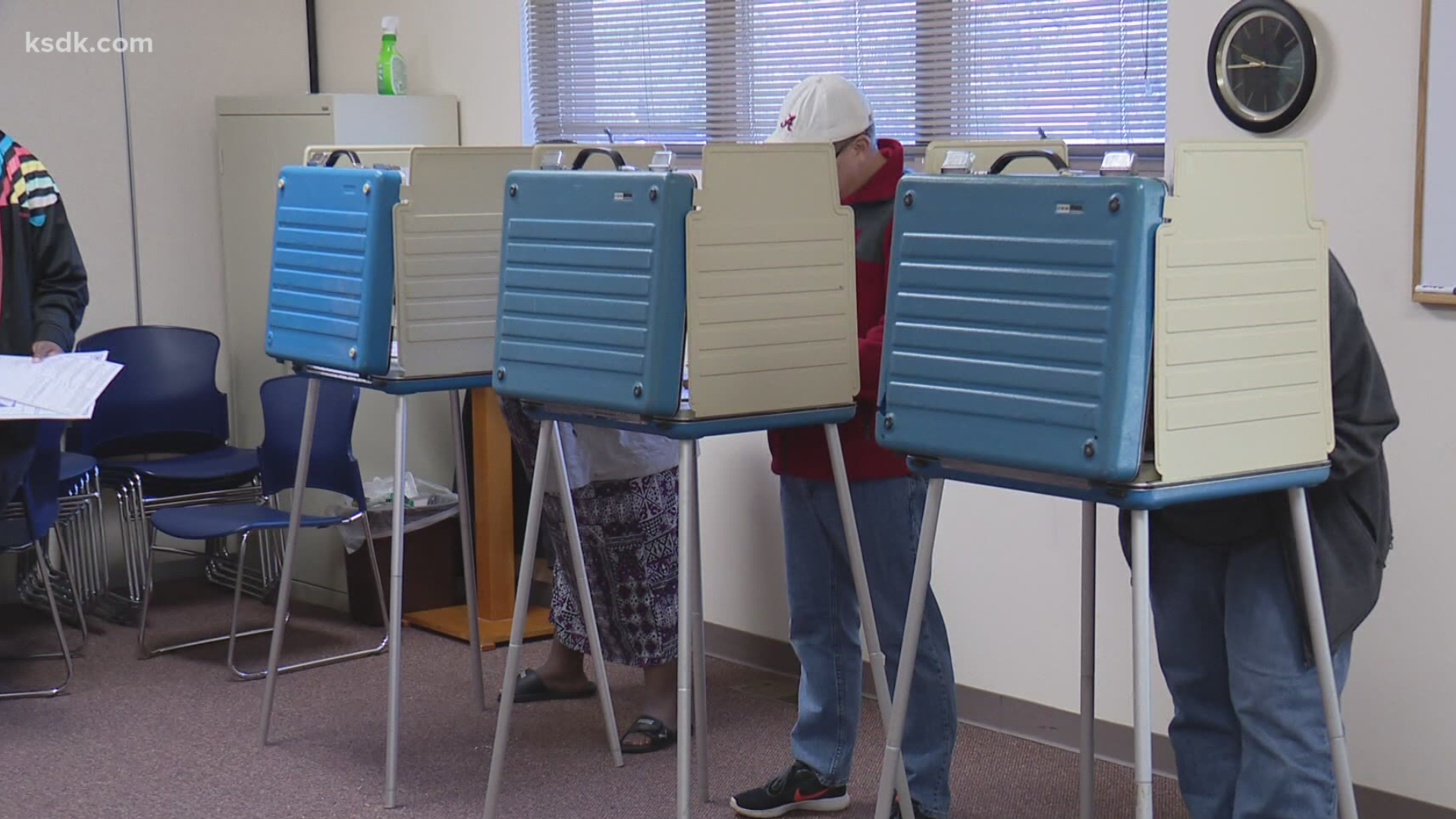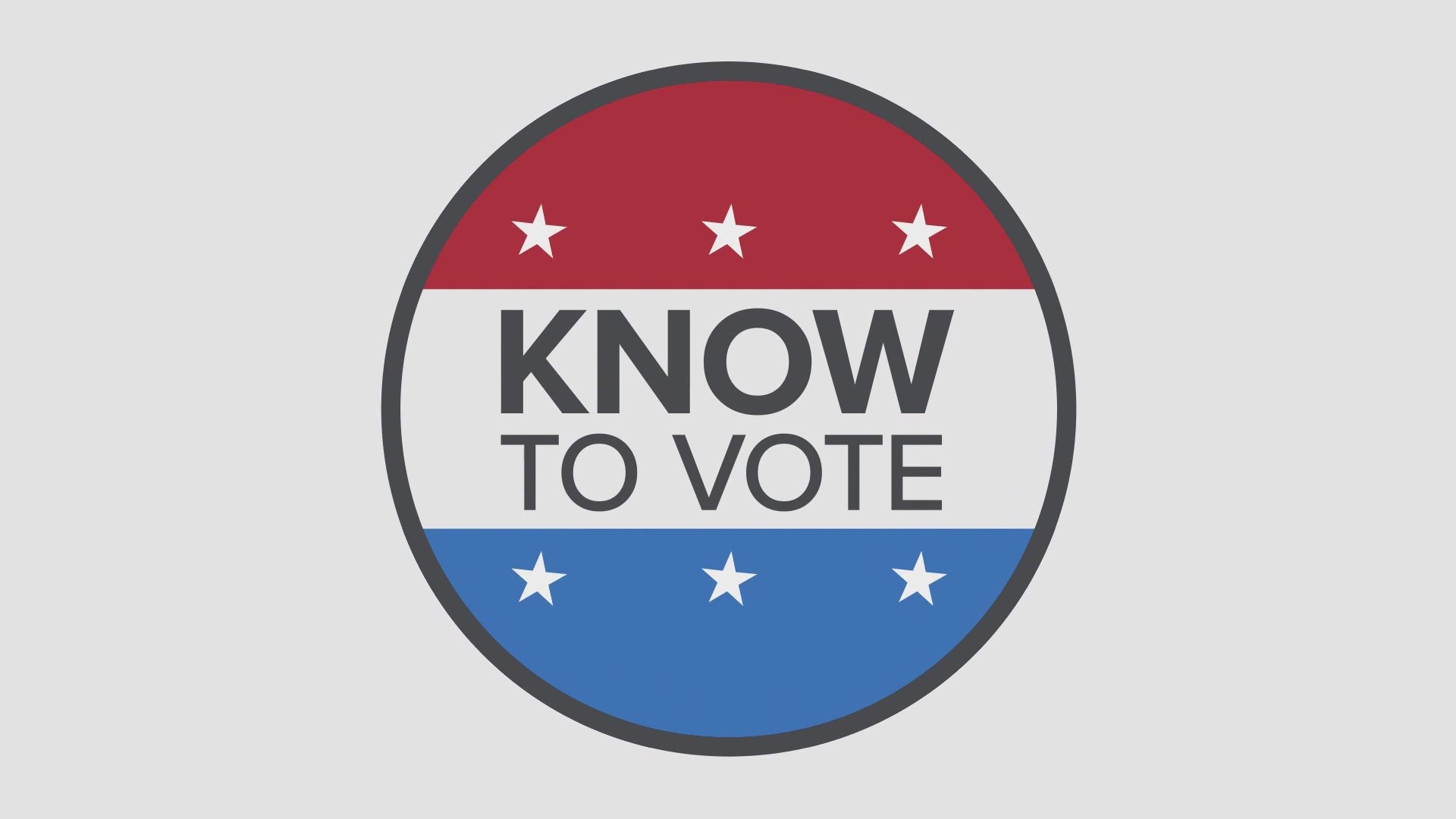ST. LOUIS — For 2020, the reasons permitting absentee voting in Missouri have expanded to include COVID-19: a diagnosis or being in an at-risk category, but not concern over getting it or spreading it.
“I don't qualify under the health exemption by Missouri's definition, and yet at the same time, I still believe that for me to go into a crowded polling place would be to put myself or to put others at risk unnecessarily,” said Rori Picker Niess, Executive Director of the Jewish Community Relations Council of St Louis.
Instead this year, Jewish voters can instead cite "religious beliefs or practice" as an absentee excuse.
An open letter from dozens of Jewish leaders across Missouri, including Picker Niess, emphasizes the need to stay home where possible, including when voting.
“I’m not willing to give up my vote in this election because of the pandemic, but I also am not willing to put myself or put others at risk because of crowded polling places,” she said.
The full letter:
"Dear Members of the Jewish Community of Missouri,
Our Jewish tradition values human life above virtually all else.
We are taught in the earliest chapters of the Torah, our core biblical text, that God created mankind in the image of the Divine (Genesis 1:27). Our rabbis teach us that to save one life is to save an entire world, and to destroy one life is to destroy an entire world. Indeed, every person has the potential to create a universe and the loss of any person is immeasurable.
The commandment to protect life extends beyond one’s own life to an obligation to protect the lives of others. The Torah instructs: “Neither shall you stand by the blood of your neighbor” (Leviticus 19:16). When the life of any person is in danger, almost all other religious laws become inapplicable.
It is for these very reasons that at this time of pandemic, our community has recognized the need to forgo all of our in-person religious rituals in the hopes of protecting the lives of those around us. Prayer services have been suspended or moved into the virtual sphere, the intricate process of preparing bodies for burial has been severely diminished, and even the holiday of Passover, one of our most central community festivals, was relegated exclusively to the home.
As the pandemic continues, our Jewish teachings, laws, and traditions require us to stay home except in situations where leaving the home is essential to preserving life. Wherever else possible, one must do everything in one’s power to do whatever else is needed from the safety and security of one’s own home.
We, the undersigned Jewish religious leaders of Missouri, believe therefore that it is a deeply-held religious belief to remain home on days in which elections are held and that such a belief qualifies one under the Missouri law to vote in any regional, state, or federal elections via absentee ballot."
That is the first guidance of its kind from leadership of major religions or congregations in Missouri. In the St. Louis area, it's estimated 3 out of 4 adults are some denomination of Christian: there is no uniform directive on how their beliefs fit in with voting absentee during the coronavirus.
“I’m a learned theologian, I've studied biblical polity and history,” said Reverend Darryl Gray. “I don't know of anything within the Christian faith that would provide that kind of exemption.” Instead, the activist and political adviser to the St. Louis Clergy coalition believes more people should be able to use the “health excuse” for voting absentee, especially Black people, who have been disproportionately impacted by COVID-19.
But The Reverend Dr. David Greenhaw, former president of the Eden Theological Seminary, wrote his own open letter urging Christians to vote absentee during the pandemic, following the letter addressed to Missouri Jews:
"It has long been the tradition of Christians to listen carefully to the teaching of rabbis. Jesus himself was called rabbi, by his followers. I have just read the letter* of 35 rabbis in Missouri expressing the deeply held religious belief that voting absentee in the time of a pandemic is a faithful response, I am moved to affirm their teaching and concur with their counsel. As a Christian theologian and ordained minister, I would likewise counsel Christians to hold fast to their faith. Voting is an important way that Christians participate in the ordering of our common life. At the same time, the act of voting should not risk the health , or even God forbid be a cause of death, for any of our neighbors. Love of neighbor is a Christian commandment. I will be practicing my faith and voting absentee during this pandemic, I call on fellow Christians to do the same."
Faith and voting can feel deeply personal—and leaders we spoke with said: both are also deeply important.
“We can do everything in our power to make sure that people don't have to choose between their health and safety and their democratic values,” said Picker Niess.


